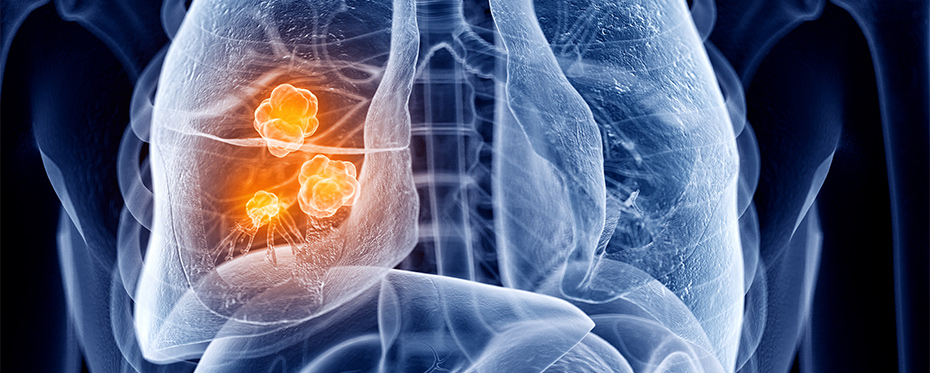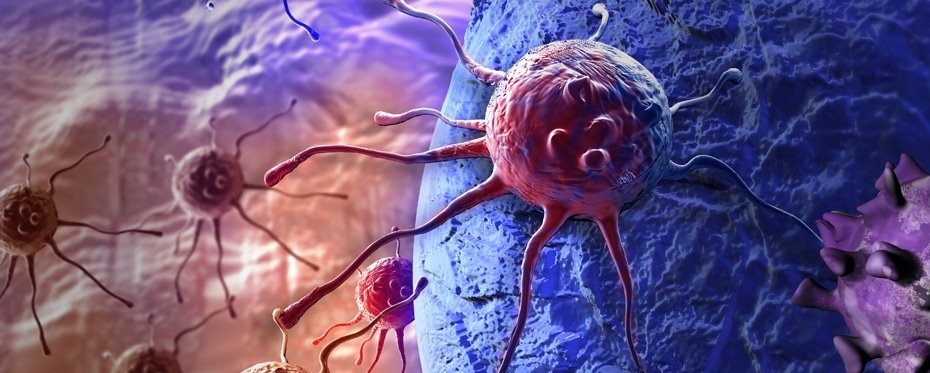Tag: lung cancer
Nivolumab against lung cancer: How is the gut–lung axis involved?

The study of the gut microbiome, which is the total of all the microbes living in the intestines, has been shown to not only play an important role in the health of the bowel itself, but also in the health of distant organs such as the lungs. Lung cancer is one of the diseases that is often difficult to treat […]
Read More… from Nivolumab against lung cancer: How is the gut–lung axis involved?
CRISPR gene editing: Can we make cancer cells easier to kill?

Lung cancer accounts for approximately one in five cancer deaths globally. The high death toll makes the development of new treatments and improvement of old ones a top priority. One of the challenges with traditional chemotherapy is that tumours can develop resistance to treatment. For several years, Eric B Kmiec, PhD, at the Gene Editing Institute of ChristianaCare, USA and […]
Read More… from CRISPR gene editing: Can we make cancer cells easier to kill?
World Cancer Day 2022: Innovations in cancer research

Despite cancer being a leading cause of death worldwide, detecting cancers early enough to treat them remains a significant challenge. World Cancer Day, held annually on February 4, presents an opportunity to celebrate the advances that have been made, and to reflect on the work still to be done. This blog post brings together five Research Outreach articles that outline […]
Read More… from World Cancer Day 2022: Innovations in cancer research
Exploring a novel approach to lung cancer treatment

Lung cancer, just like other types of cancer, is mostly treatable when diagnosed in the earliest stages. Treatments mainly include chemotherapy and surgeries such as sublobar resection and lobectomy. The thoracic surgical team led by Dr Calvin Ng at Prince of Wales Hospital, The Chinese University of Hong Kong, have successfully applied a novel approach to lung cancer treatment. They […]
Read More… from Exploring a novel approach to lung cancer treatment
Laboratory lungs: The implications of lung organoids for health and disease

Lung disease is a major public health concern. However, research is hindered by the challenges of developing translatable human lung systems in a laboratory setting. Dr Sandra Leibel, neonatologist and Physician Scientist at UCSD and Rady Children’s Hospital in San Diego, USA, is studying lung development and disease mechanisms. In order to do this, she has developed stem cell-derived lung […]
Read More… from Laboratory lungs: The implications of lung organoids for health and disease
Transtympanic injections to prevent hearing loss caused by cisplatin

Dr Sofia Waissbluth from The Pontificia Universidad Católica de Chile is specialised in otolaryngology (conditions of the head and neck). She has reviewed clinical trials that use transtympanic injections to prevent hearing loss caused by the chemotherapeutic agent cisplatin. To date there is no ‘one-shot’ solution to protect or cure patients from hearing loss. However, combinational therapy using transtympanic injections […]
Read More… from Transtympanic injections to prevent hearing loss caused by cisplatin
Novel imaging technique could lead to early diagnosis of lung cancer

Non-small cell lung cancer is one of the most widespread forms of the disease. As with many other cancers, the best chance of survival comes with early diagnosis; unfortunately, at present this often doesn’t happen. In research that has the potential to improve the prognosis of lung cancer patients, Dr Claudio Scafoglio and colleagues at the University of California, Los […]
Read More… from Novel imaging technique could lead to early diagnosis of lung cancer
Integrating molecular epidemiology and microbiome science
How cancer patients respond to therapy

Understanding the variation in responses to cancer therapeutics would create better treatment for many patients and provide an important basis for further research into new or personalised treatments. It is understood there is a connection between patient response to treatment and their microbiome. However, there is currently a lack of consensus on the microbial signatures present in responsive versus unresponsive […]